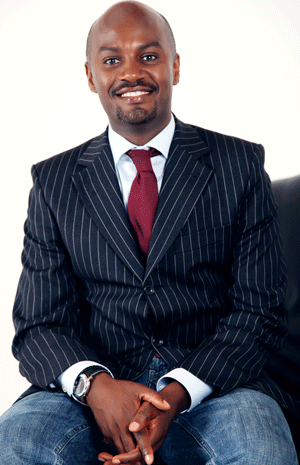Why we should stop complaining about what our country has failed to do and ask what we can do
It is very hard to get things done, even at the smallest level. But
it is very easy to sit and complain about things. Reading social media,
one gets the sense that we have increasingly become a complaining
nation, not a doing nation. Everywhere complaints abound of our failing
healthcare and education system, of corruption and abuse of office. But
one hardly reads a story of what those complaining are doing to change
the situation. Are we waiting for intervention from God?
Sunday, February 22, 2015
Sunday, February 15, 2015
Somehow, the opposition is maturing
The obstacles to building an effective opposition and advancing democracy without “regime change”
Last week, the NRM and opposition leaders agreed on 43, out of 48 proposed electoral reforms. This is contrary to the doomsday scenarios its hecklers have been presenting that there is no chance in hell for NRM to accept reform. To deepen democracy, the opposition should talk to NRM. Negotiations would be one of its many instruments – others being using the mass media, organising rallies, street protests, using courts and lobbying powerful players inside NRM, donors and President Yoweri Museveni personally.
Last week, the NRM and opposition leaders agreed on 43, out of 48 proposed electoral reforms. This is contrary to the doomsday scenarios its hecklers have been presenting that there is no chance in hell for NRM to accept reform. To deepen democracy, the opposition should talk to NRM. Negotiations would be one of its many instruments – others being using the mass media, organising rallies, street protests, using courts and lobbying powerful players inside NRM, donors and President Yoweri Museveni personally.
Sunday, February 8, 2015
Rethinking institutions in Africa
Why poor countries may need a more activist president, one willing to intervene to get them to work
Let me do what the Germans call Gedanken (a thought experiment). Political power in most of post-colonial Africa has tended to be personalised. We feel that this is bad and tends to undermine the ability of the state to serve broader social goals. Personalised power also tends to be arbitrary. But why don’t David Cameron and Barak Obama in the UK and USA personalise power? Could it be that over hundreds of years, power in UK and USA has been institutionalised so much so that an attempt to personalise it cannot be contemplated and that if anyone leader tried, they would not succeed?
Let me do what the Germans call Gedanken (a thought experiment). Political power in most of post-colonial Africa has tended to be personalised. We feel that this is bad and tends to undermine the ability of the state to serve broader social goals. Personalised power also tends to be arbitrary. But why don’t David Cameron and Barak Obama in the UK and USA personalise power? Could it be that over hundreds of years, power in UK and USA has been institutionalised so much so that an attempt to personalise it cannot be contemplated and that if anyone leader tried, they would not succeed?
Sunday, February 1, 2015
The pathologies of Uganda’s democracy
How it has facilitated a politics that has undermined the ability of public institutions to serve the common good
To explain the dysfunctions in the public sector in Uganda, we need to understand how political power in our country is organised, how it is exercised and how it is reproduced. For example, how does President Yoweri Museveni build his electoral coalition? How do other elected officials – members of parliament and local councils – build successful political careers? Often, our debates tend to moralise, praise, pontificate and condemn but they rarely analyse and illuminate the salient issues that shape politics.
To explain the dysfunctions in the public sector in Uganda, we need to understand how political power in our country is organised, how it is exercised and how it is reproduced. For example, how does President Yoweri Museveni build his electoral coalition? How do other elected officials – members of parliament and local councils – build successful political careers? Often, our debates tend to moralise, praise, pontificate and condemn but they rarely analyse and illuminate the salient issues that shape politics.
Subscribe to:
Posts (Atom)
